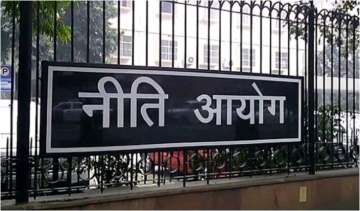Niti Aayog Vice Chairman Rajiv Kumar on Friday called for further reforms in banking sector after the recent recapitalisation and mergers, saying banks need autonomy and work at arm's length from the government.
Speaking here at the India Economic Summit, Kumar also said the government must consider tapping capital markets and raise long- term funds for creating long-term assets through routes such as sovereign bonds and not only look at banking sector for financing infrastructure development.
"I think that the next focus will have to be on governance reforms in a very major way, governance reforms in the banking sector particularly because that is needed," Kumar said.
He further said already there have been several committees looking into that.
"Time has come...along with this round of latest recapitalisation and mergers, you do make sure that banks are now governed, managed and bank boards etc get the autonomy at arm's length distance from the government," Kumar said.
In August, the government decided to merge 10 public sector banks into four with an aim to make global-sized banks. The government had also announced Rs 70,000 crore upfront capital infusion into several public sector banks.
Reiterating that he has been "votary of privatisation of some of the public sector banks", Kumar said such a step "does make for a better, competitive situation in the economy, in the financial sector".
He, however, said the banking sector alone should not be expected to do the "heavy lifting" to provide funds to finance investments, specially in infrastructure sector, and the government must look at tapping capital markets.
"We do need the government to tap capital markets, where you can get longer-term financing for the longer term asset creation you need and this is where you want to attract pension funds etc into government, "Kumar added.
"Therefore the discussion at least, I don't know where it is at the moment, on sovereign bonds was done...to look at possibilities (to attract fund) because
India's external debt to GDP ratio is very low. It is about 22 per cent," Kumar said.
He also said India's domestic debt to GDP is being low at around 54 per cent.
"There is a massive potential for the debt to get into action, for the market to get into action," he said, adding "that's what we need to look at."
He also said that the government may re-look at DFIs (Development Financial Institutions) for infrastructure funding.
Also Read | Rupee ends flat at 70.88 against USD after RBI rate cut
Latest Business News
